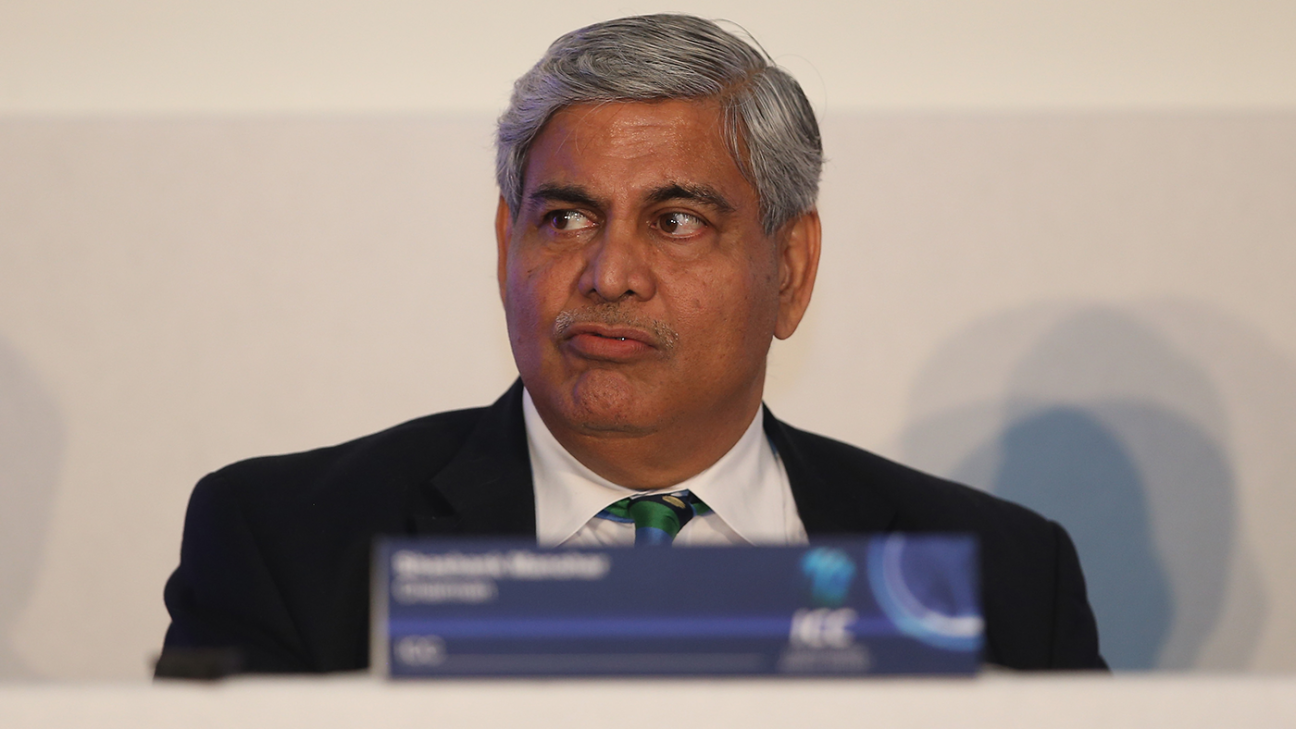
International cricket is set for a fourth attempt to shake up the way the game is governed in the space of seven years, after the Cricket Australia chairman Earl Eddings was commissioned by the ICC chairman Shashank Manohar to lead a review of governance that may well challenge its status as a members organisation with a board largely drawn from that membership.
Manohar's decision to commission the review may be a signal that he intends to push for another term as the ICC's independent chairman, allowing him to usher through further reforms to the game after pushing through a reversal of the "Big Three" policies led by the boards of India, England and Australia and their overseers N Srinivasan, Giles Clarke and Wally Edwards in 2014.
Though no date for its completion has been set, there is the strong possibility that Eddings and his committee will present at least an interim report on a fresh vision for the game's decision-making by the time of the next ICC annual conference in June 2020.
Eddings has initially been joined on the working group by Greg Barclay (New Zealand Cricket), Tony Brian (Cricket Scotland), Ehsan Mani (Pakistan Cricket Board), Chris Nenzani (Cricket South Africa) and Ricky Skerritt (Cricket West Indies), but there is believed to be scope to add other members to the group - the absence of representation for the BCCI being a notable feature of the panel at this point.
Areas the review will look into will likely include the composition of the executive board of the ICC, the need to introduce more women to the game's highest level of decision making - a single independent female board director, Indra Nooyi, has sat on the board for the past year and was recently re-elected for another two years - and a desire to adopt more professional governance practices across the ICC.
The job confronting Eddings, while underlining the respected place he now holds at the ICC after replacing David Peever as CA chairman a year ago, is a dicey one given the recent history of changes. After the failure of CA and NZC to have their nomination of John Howard for ICC president succeed in 2010 as the BCCI led opposition to the rotation of the presidency, an independent review into governance was commissioned by the then ICC chief executive Haroon Lorgat and helmed by Lord Woolf.
His findings, released publicly in 2012, called for fundamental changes, and was immediately rejected by the BCCI - more or less automatically consigning the document to the bottom drawer of the ICC's management and board. Instead, Srinivasan, the ECB and CA set about building a different system in which the game's richest nations took the lion's share of its key financial and strategic decisions.
After Srinivasan was blindsided by the BCCI's domestic corruption problems - many of them related to the Chennai Super Kings in the IPL, of which he was owner - Manohar's ascension to the position of independent chairman of the ICC brought a third change, rolling back many of the Big Three changes, though retaining a larger share of ICC event revenue for India.
Eddings, who was on the CA board when it underwent fundamental changes, from a 14-person representative board composed of delegates from the six state associations that own CA to a nine-person independent board appointed on a skills basis, can be expected to review all these events and their related reports, including the hotly-debated Woolf report.
Equally, a wide variety of views will be canvassed, with the option of taking on independent consultants and advice. However, there will be one major difference this time around - the review, when it does arrive, will have been put together by the ICC's membership itself, a major reason why the BCCI was able to dismiss Woolf's findings seven years ago.















 Phone: (800) 737. 6040
Phone: (800) 737. 6040 Fax: (800) 825 5558
Fax: (800) 825 5558 Website:
Website:  Email:
Email: 






